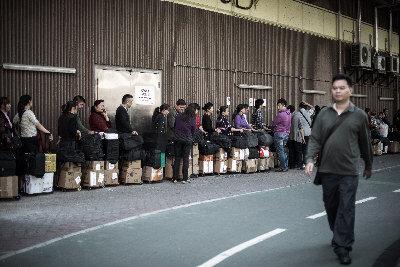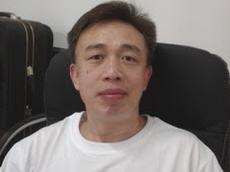The People Republic of China’s state-run mouthpiece, Xinhua, reported on June 1 that the PRC State Council would take measures to ensure the safety of infant formula, in order to increase consumer confidence in domestic brands. The announcement indirectly indicates that the Chinese regime has recognized that the proliferation of contaminated milk has become a serious and widespread problem in China.
In 2002, the EU banned imports of milk and milk products from China after they failed to meet safety standards. It later enlarged the scope of the ban in 2008, requiring that food products imported from China containing more than 15 percent in milk powder be tested before entering any EU country. Many countries and regions around the world have since instituted bans on the import of Chinese dairy products, including Burma (also known as Myanmar), whose government has traditionally had the Chinese Communist Party’s support.
In early April this year, the Nanfang Daily and the Guangzhou Mothers’ Network jointly launched an online survey that polled mothers on the type of milk powder they considered to be safe. The results showed that 93.1 percent of Chinese mothers believed that imported brands of milk powder were safer than domestic brands, while just 9.6 percent felt that both imported and domestic brands were equally safe, and zero percent believed that domestic brands were the safer option.
The survey also showed that only 2.59 percent of mothers still purchase domestic brands of milk powder. In contrast, over 80 percent indicated that they bought imported brands from Hong Kong, Macao, or other overseas sources, and the remainder presumably chose to breast feed their children and forgo infant formula altogether.
The surge in demand for foreign brands of milk powder created shortages in Hong Kong, which eventually led to restrictions limiting the amount of milk powder a person could bring out of Hong Kong to 1.8kg.
According to the China Times, since the implementation of the milk powder limits in Hong Kong, many mainland Chinese have begun travelling to Taiwan to buy milk powder. Quoting Phoenix Satellite Television, China Times said that that there have been Taiwanese reports of mainland Chinese tourist groups visiting pharmacies in Taiwan to buy milk powder, with the tourists typically buying at least four cans each.
The situation is not limited to just Hong Kong and Taiwan however, with Chinese people all over the world purchasing milk powder in bulk and sending it to China.
The World Journal reported that in recent years, many Chinese living in America have begun buying large quantities of milk powder to send to their relatives in China; sometimes even sweeping clean supermarket shelves. Because of this, supermarket chains across the United States began implementing restrictions last June stating that each customer could only buy five to twelve cans of milk powder at a time.
The New Zealand government also implemented restrictions allowing only registered exporters to export milk powder in September 2012, reported the Nanfang Daily.
Restrictions on milk powder purchases have appeared in more countries since the start of this year.
Dutch supermarkets, department stores, and pharmacies have implemented such restrictions earlier this year, stating that every customer could only buy one to three cans at a time.
In late January, Germany’s large drugstore chains, including DM and Rossmann, implemented regulations that customers had to produce the identification papers for their children in order to purchase milk powder, and could only purchase up to three bags each.
In February, Australia’s major supermarkets and health food stores restricted every customer to four cans of infant formula each per purchase.
By early April, several major supermarket chains in Europe also began taking measures to restrict bulk purchases of infant milk powder.
These purchase restrictions have thus resulted in a boom in online shopping for milk powder from overseas. In 2012, the Alibaba Group’s revenue from the online purchases of overseas products grew by 117 percent, outstripping that of domestic products, which grew by only 64.7. Milk powder was also the most popular product bought via online shopping in China.
Translation by Irene Luo. Research by Sunny Chao. Written in English by Shu Yan Tan.
Read the original Chinese article.




